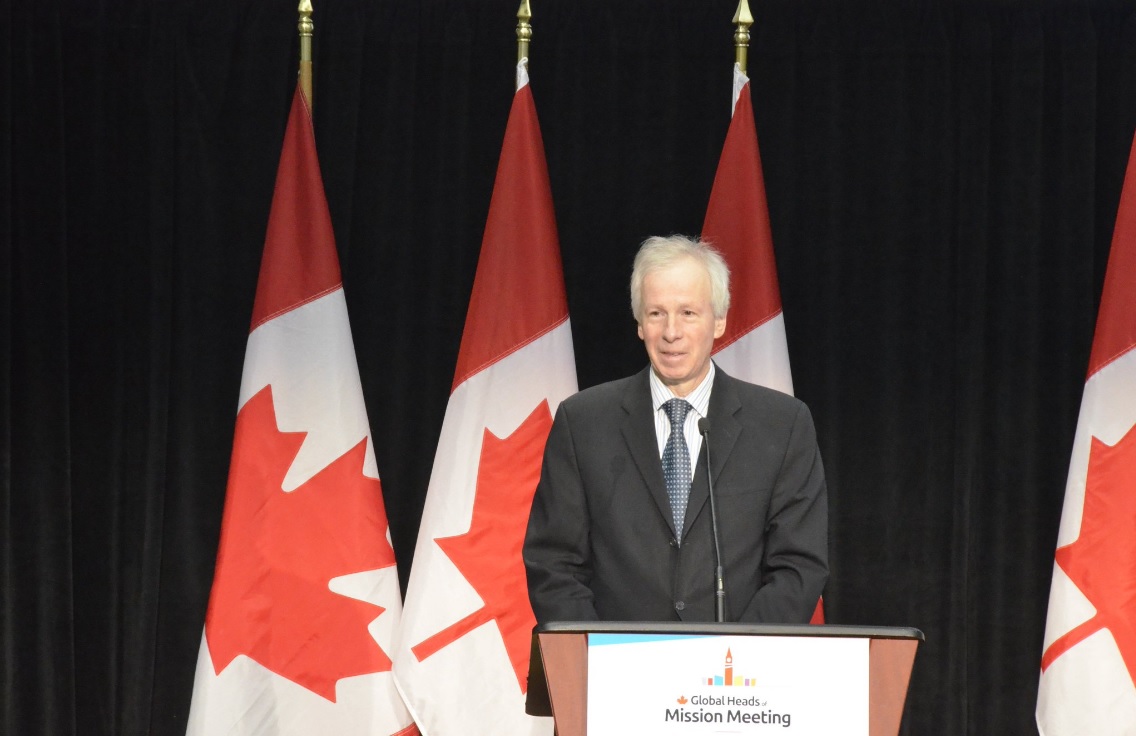
OTTAWA—Canada weighed in Thursday in the ongoing South China Sea dispute, with a thinly-veiled call to China to abide by an international ruling that has angered Beijing.
While the statement from Foreign Affairs Minister Stephane Dion doesn’t specifically name China, it appears aimed at the country, which is angry after an international panel rejected much of its maritime claim.
The Hague panel that administers the UN Convention on the Law of the Sea sided last week with the Philippines and rejected much of the legal basis of China’s claim.
The maritime dispute has implications for Sino-Canada relations at a time when the Trudeau government is seeking to make economic and political inroads with China.
Prime Minister Justin Trudeau is bound for China later this summer for the G20 leaders’ summit, after having appeared to reboot relations with China last fall during his first meeting with President Xi Jinping.
But Canada’s recent decision to side with G7 ally Japan on the maritime tensions, as well as disagreements with China over human rights, are complicating those aspirations.
Dion reiterated Canada’s commitment to “the maintenance of international law and to an international rules-based order for the oceans and seas” in helping resolve the six-country dispute.
“Whether one agrees or not with the ruling, Canada believes that the parties should comply with it,” Dion said Thursday.
“We are deeply concerned about regional tensions that have been escalating for a number of years and have the potential to undermine peace and stability,” he added.
“It is essential that all states in the region exercise restraint and avoid coercion and actions that will escalate tension.”
Defence Minister Harjit Sajjan insisted that Canada wasn’t taking sides in the dispute.
“There are international bodies where we can resolve disputes and a decision has been made within the law, and the parties should respect those decisions,” he said in an interview.
But one international affairs expert sees it differently.
“It is a message to China without mentioning China—diplomatically worded but unambiguous,” said Fen Hampson, the head of the global security program at the Centre of International Governance Innovation in Waterloo, Ont.
“The government is finding that China is a difficult country to do business with and that relations will not be easy to manage.”
The South China Sea is one of the world’s busiest trade routes, which is significant for Canada as it tries to deepen its economic footprint in the region through the 12-country Trans-Pacific Partnership, and other bilateral deals.
Dion’s statement makes specific reference to China’s provocations in the region such as building artificial islands and landing strips, as well as requiring foreign aircraft flying over dispute waters to identify their presence to Beijing.
“All claimants must refrain from land reclamation, militarization and other actions that can undermine regional security and stability,” said Dion.
“Actions that could jeopardize freedom of navigation and overflight exercised in accordance with international law, maritime security and international trade must also be avoided.”